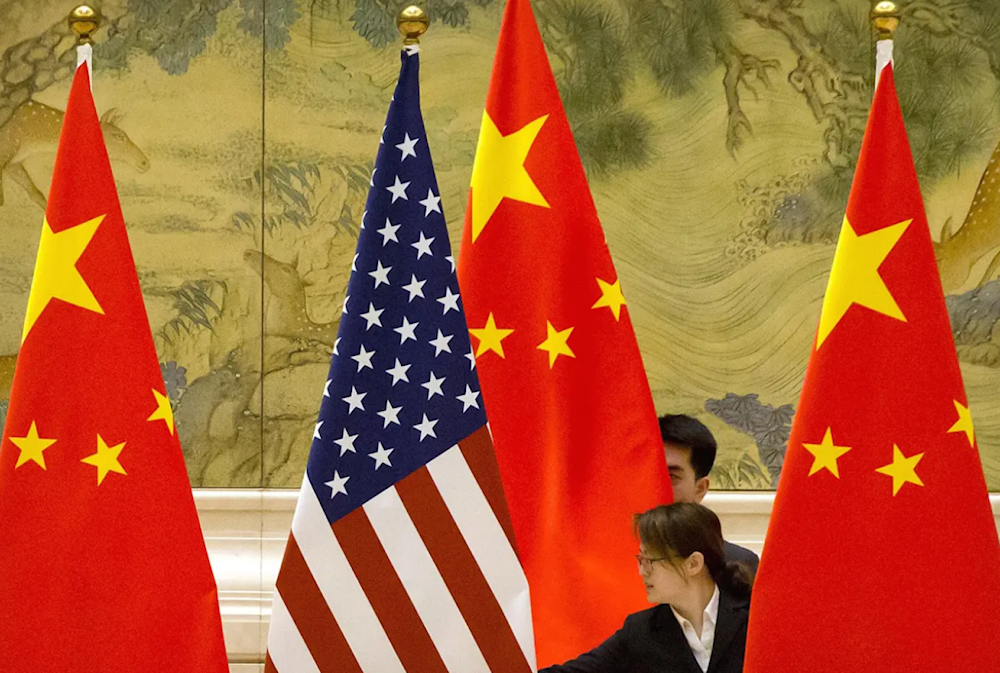Trade talks between US, China set for June 9 in London
According to Trump, the meeting should go "very well".
-

Chinese staffers adjust the US and Chinese flags before the opening session of trade negotiations between the US and Chinese trade representatives at the Diaoyutai State Guesthouse in Beijing, on February 14, 2019 (AP)
Three of President Donald Trump’s top advisors are set to meet with their Chinese counterparts in London on Monday, aiming to ease tensions in a trade dispute between the world’s two largest economies, a standoff that has unsettled global markets.
Representing the US will be Treasury Secretary Scott Bessent, Commerce Secretary Howard Lutnick, and Trade Representative Jamieson Greer, according to Trump, who announced the upcoming talks via a post on his Truth Social platform. However, he did not share further details.
It remains unclear who will represent China, and the Chinese embassy in Washington has yet to respond to inquiries.
“The meeting should go very well,” Trump wrote.
High-stakes dialogue follows rare Trump-Xi call
The meeting was scheduled just one day after President Donald Trump held a rare direct call with Chinese President Xi Jinping, amid escalating trade tensions and a growing dispute over critical minerals.
During the conversation, both leaders agreed to exchange visits and directed their teams to begin negotiations in the interim.
Pressure is mounting on both sides to de-escalate. The global economy is feeling the strain from China’s dominance in rare earth mineral exports, essential for modern technologies, while investors remain on edge over Trump’s broader push to impose tariffs on goods from major US trading partners.
At the same time, China is grappling with restrictions on key US imports, including advanced chip-design software.
On May 12, the nations reached a 90-day agreement in Geneva to reduce some of the triple-digit tariffs imposed on each other since Trump's January presidency.
The tentative agreement spurred a global relief rally in stock markets, and US indices that had been in or near bear market territory had recovered the majority of their losses.
High-stakes dialogue follows rare Trump-Xi call
Though stocks surged, the interim agreement did not address bigger issues straining the bilateral relationship, including the alleged illegal fentanyl trade, the status of Taiwan, and US worries about China's economic model.
Since returning to the White House in January, President Trump has repeatedly threatened a range of punitive trade measures, only to walk back on some of them at the last moment. This unpredictable, stop-start approach has confused global leaders and unsettled business leaders.
Beijing views its mineral exports as a powerful bargaining chip. Cutting off these critical resources could create economic disruptions in the US, potentially fueling domestic political pressure on Trump if slowed growth hampers the production of mineral-dependent goods.
In recent years, the US has increasingly identified China as its primary geopolitical rival and the only nation capable of challenging American dominance both economically and militarily.

 3 Min Read
3 Min Read










